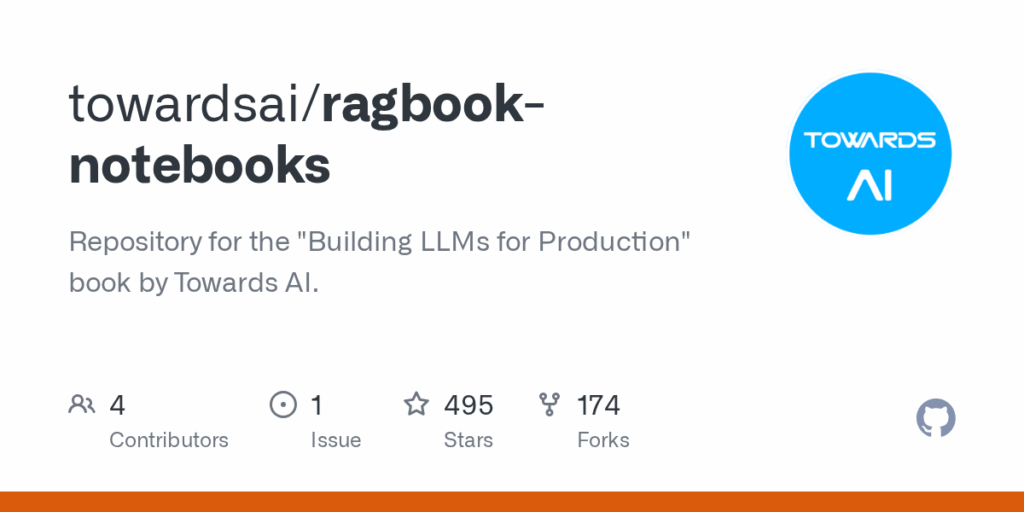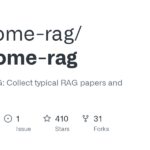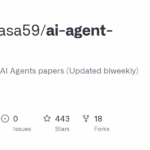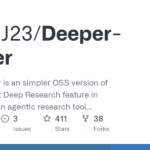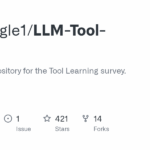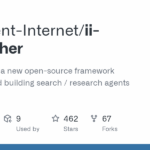ragbook notebooks
Basic Information
This repository collects interactive Jupyter notebooks that serve as the companion material for the Towards AI RAG book. The notebooks are organized by chapter and cover foundational and advanced topics such as transformer architectures, prompt engineering, retrieval augmented generation, LangChain and LlamaIndex usage, agent construction, multimodal examples, fine tuning, reward modeling and inference benchmarking. Each listed notebook can be opened in Google Colab via the provided links. The collection is intended to let readers follow step by step examples from the book, reproduce experiments, and explore practical implementations of RAG pipelines, prompt templates, chains, output parsers and knowledge graph creation. It functions as hands-on, tutorial style material mapped to the book chapters.

